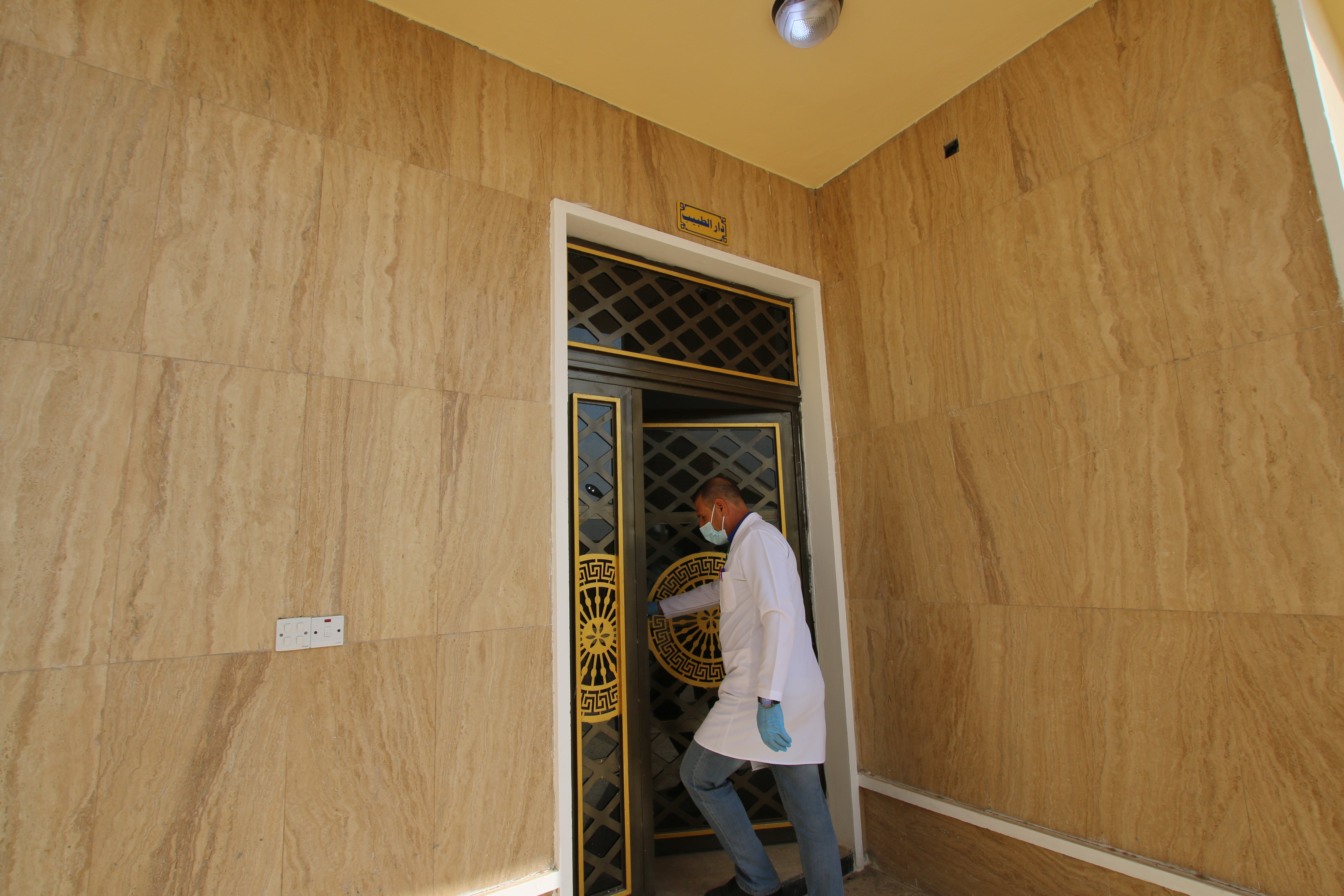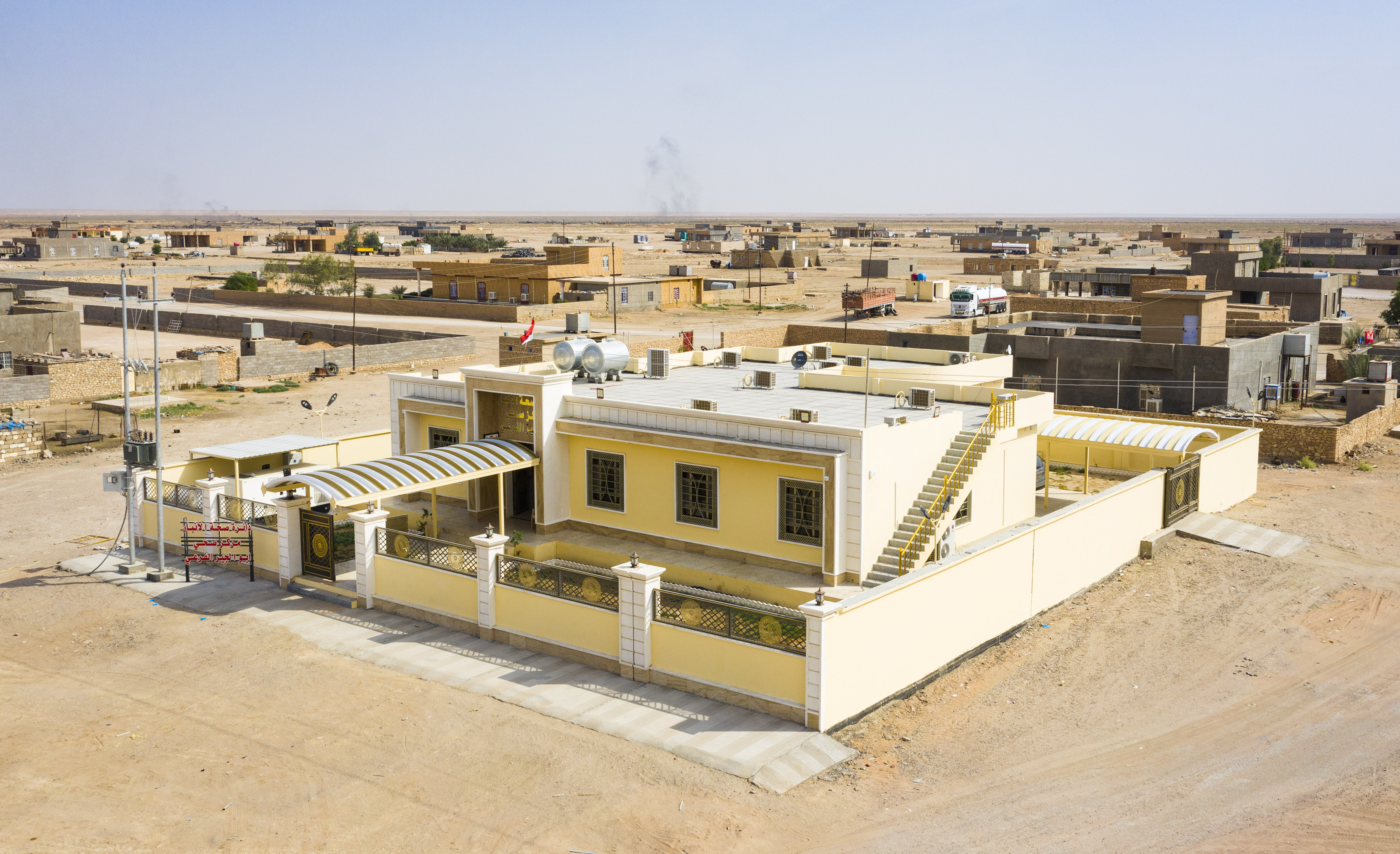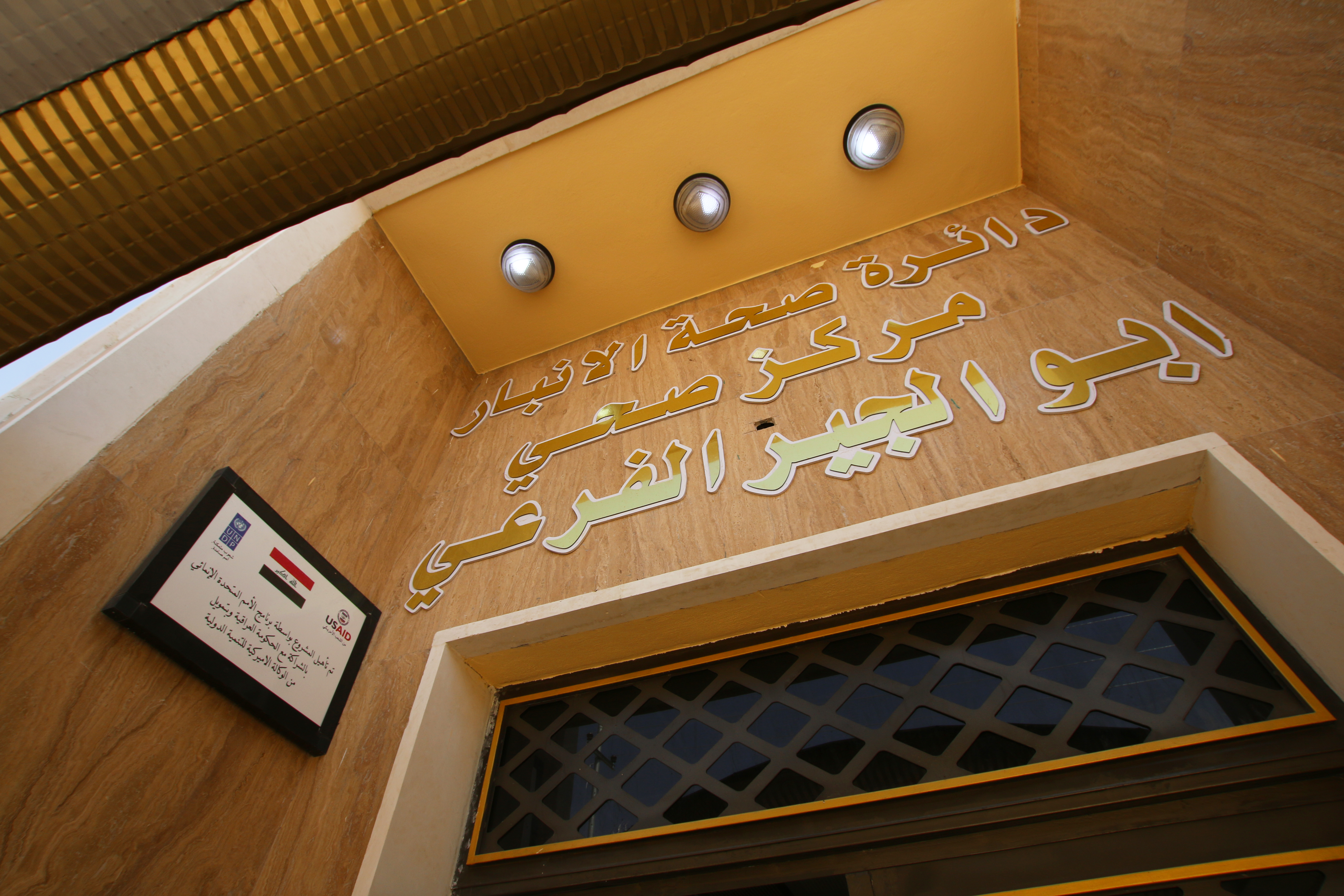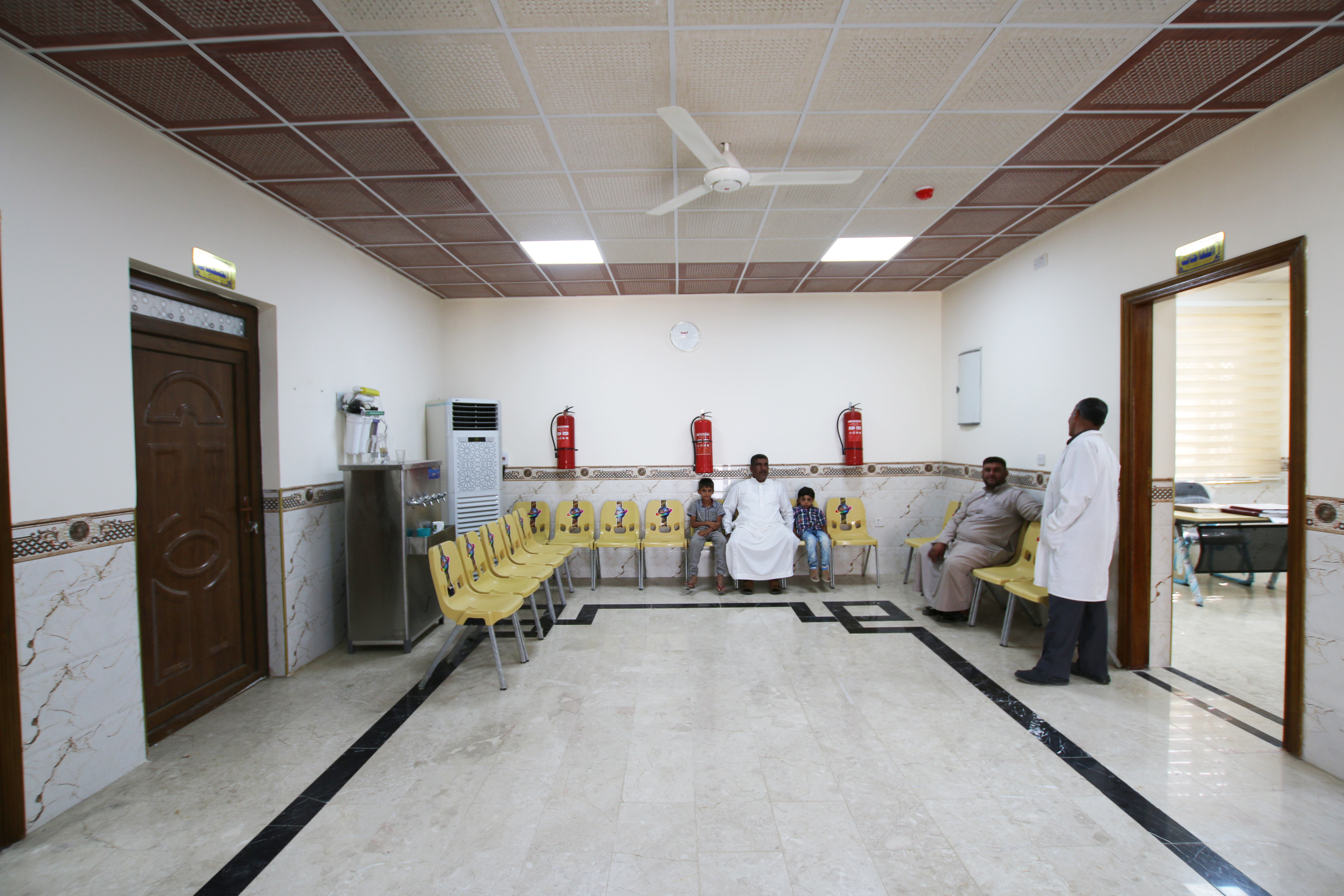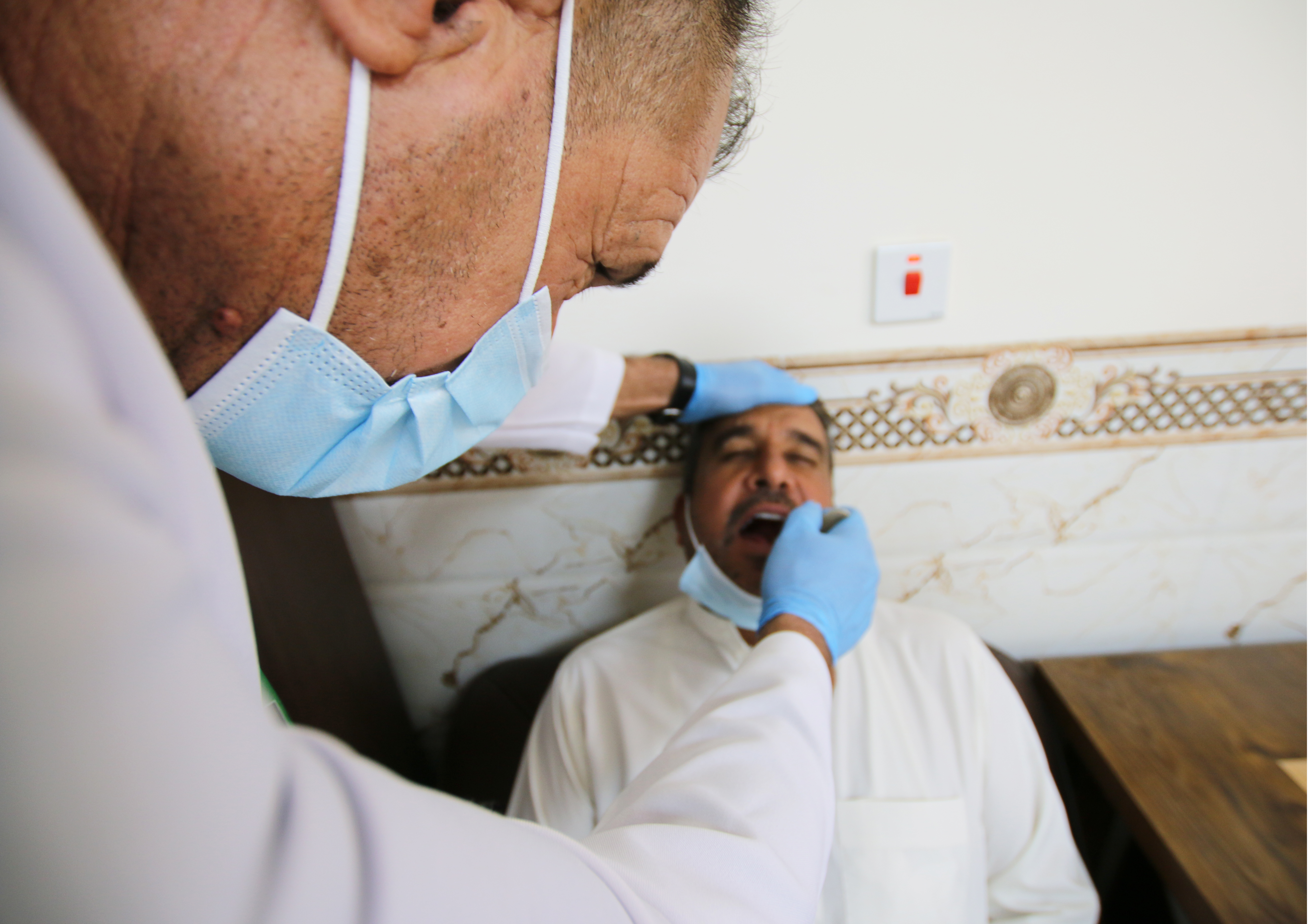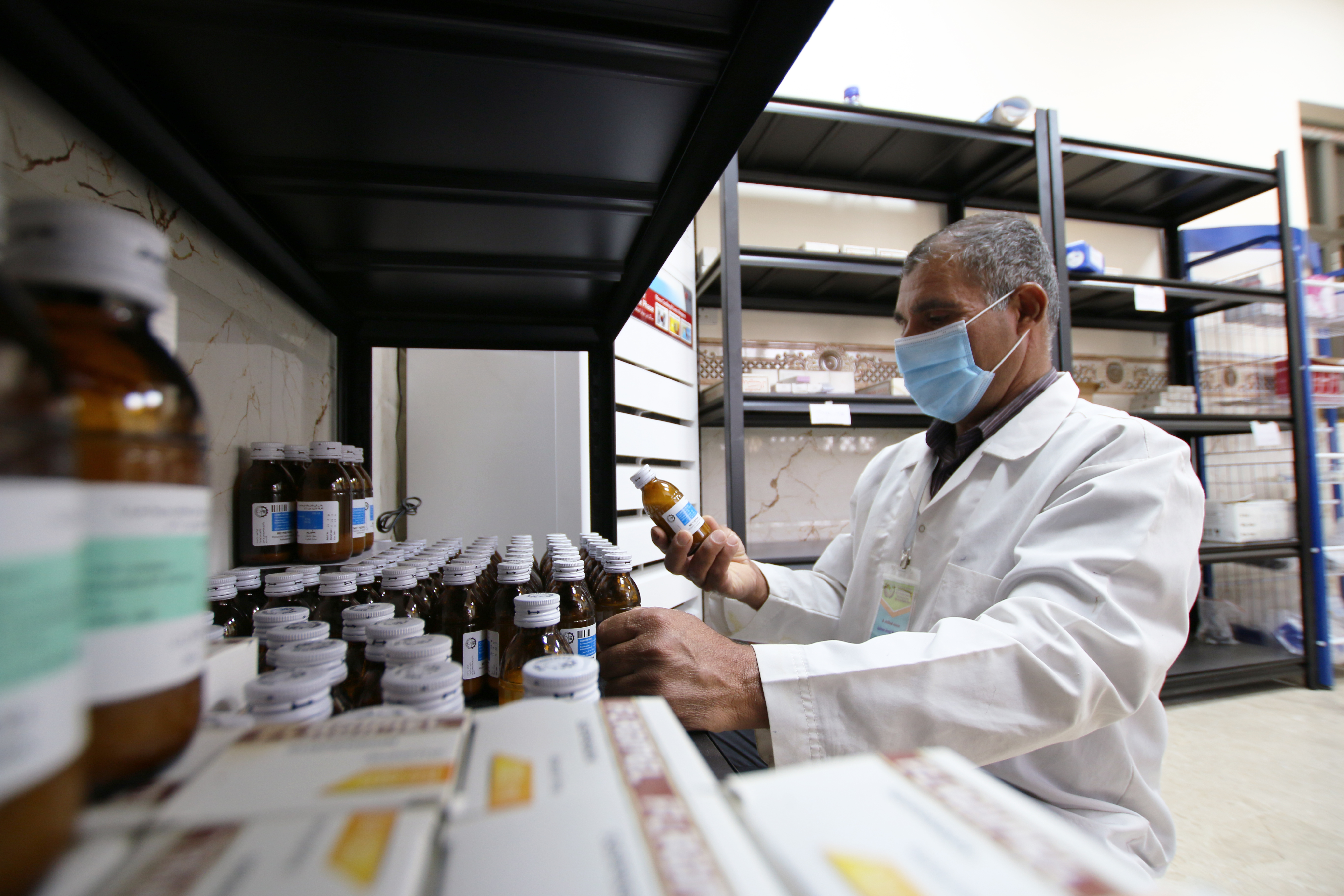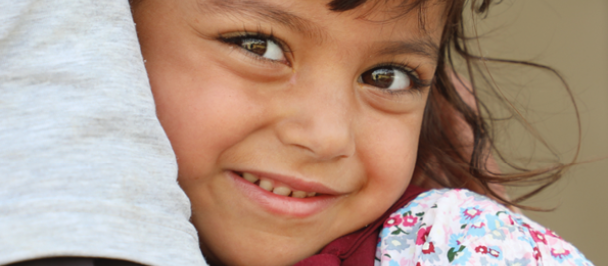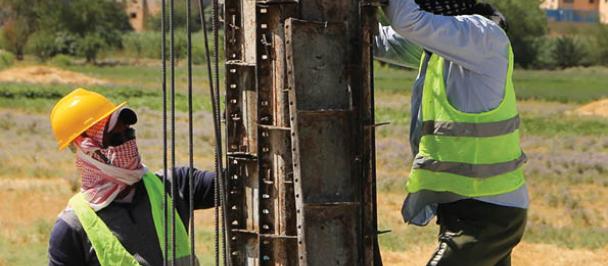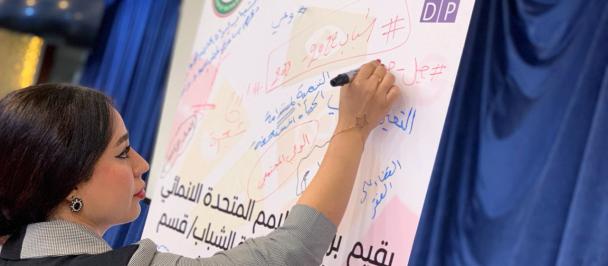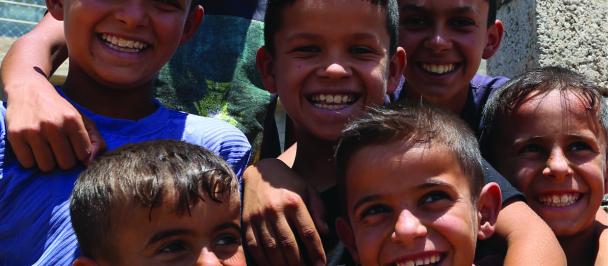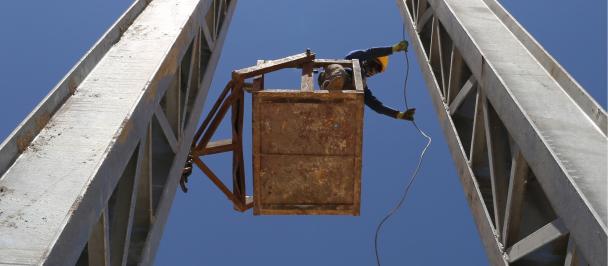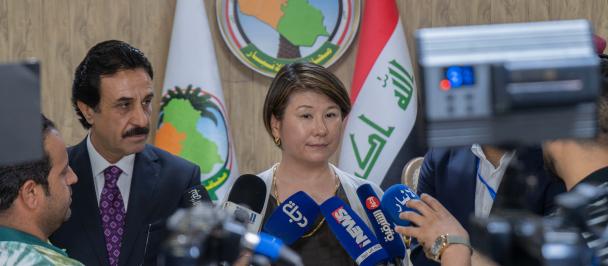A health center on the outskirts of Ramadi has restarted its operations, serving over 5,000 residents.
Health Centre in Ramadi Reopens Its Doors
October 25, 2021
Hussain, Director of Abo Aljear Sub Public Health, enters the center. Photo: UNDP Iraq/Hamza Ahmed.
“Before ISIL, the health center was old and the equipment outdated. Therefore, it did not have the ability and space to serve all the residents in the area. To top it, during ISIL, the structure was left damaged. This called for the center to be rebuilt and upgraded at the same time,” says Abd Hussain Ali Suleiman. The 51-year-old works as the Director of Abo Aljear Sub Public Health Centre in Al-Wafaa, Ramadi.
The health center, situated on the outskirts of Ramadi, was left severely damaged during the ISIL occupation. It forced residents to travel far to reach the nearest health care facility.
Aerial view of the public health center based in the outskirts of Ramadi. Photo: UNDP Iraq/Hamza Ahmed
However, the situation is different today. “The health center is now fully rebuilt and operational. I am proud to see that basic health services are accessible to the residents. The doors are now open,” says Hussain.
USAID supported the rehabilitation of the facility. Photo: UNDP Iraq/Hamza Ahmed.
The facility's rehabilitation was implemented through UNDP Iraq’s Funding Facility for Stabilization with funding from United States Agency for International Development (USAID). It has now reopened its doors to over 5,000 people living in and around the area.
“We recently had the case of a woman who was in labor, and we had little time to take her to the main hospital. They brought her to this health center. We administered her delivery successfully with the help of a midwife. This was possible thanks to the support we received to get the center back up and running,” adds Hussain.
Patients in the waiting room that was equipped and rehabilitated. Photo: UNDP Iraq/Hamza Ahmed.
"I am proud to see that the center provides services such as prevention of infectious diseases, non-communicable diseases, maternity care, vaccinations and community awareness programs. Half of these services were not easily accessible to the residents before,” shares Hussain. Today, the center receives over 30 patients daily. It also has the ability to collect and process COVID-19 tests.
Hussain attends to patients at the center. Photo: UNDP Iraq/Hamza Ahmed.
On Hussain’s vision for the health center, he says, “One day, I hope to transform this sub-center into a main center. We will then be better equipped to handle complex surgeries and health emergencies. Our sole responsibility at the center is to put the needs of our citizens first.”
About the programme:
This project was implemented through UNDP’s flagship programme, the Funding Facility for Stabilization (FFS), with generous support from USAID. Since its inception in 2015, FFS has worked with the Government of Iraq and local actors to ensure safe, dignified, and voluntary returns and to lay the foundation for the successful reintegration of displaced populations into the community.
Its 29 funding partners have contributed $1.46 billion to the programme, which has completed 2,944 projects in five governorates liberated from ISIL, improving the lives of more than 14.6 million Iraqis. Read more here.

 Locations
Locations